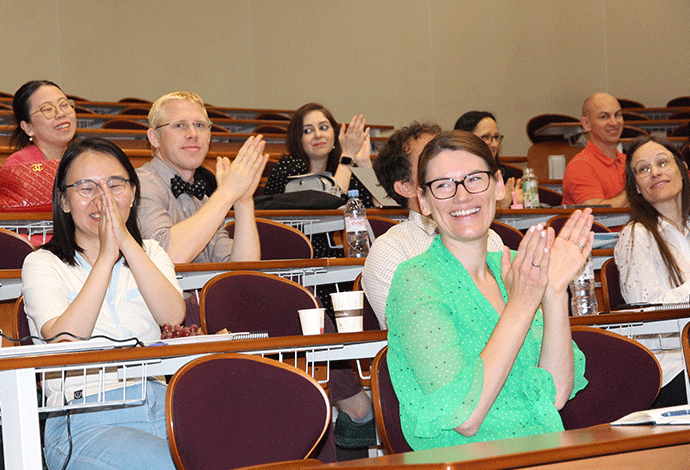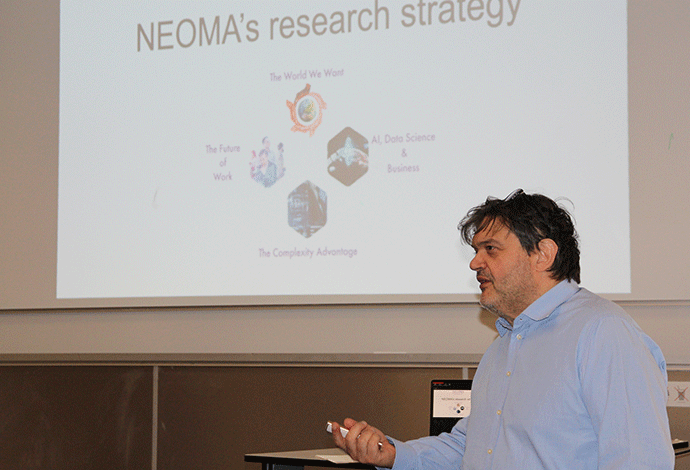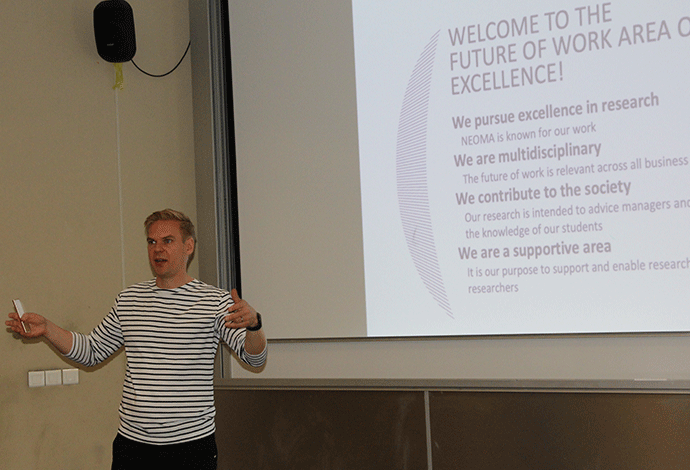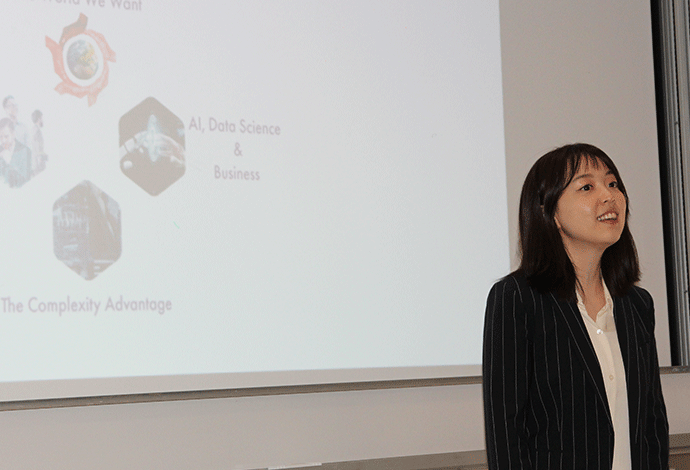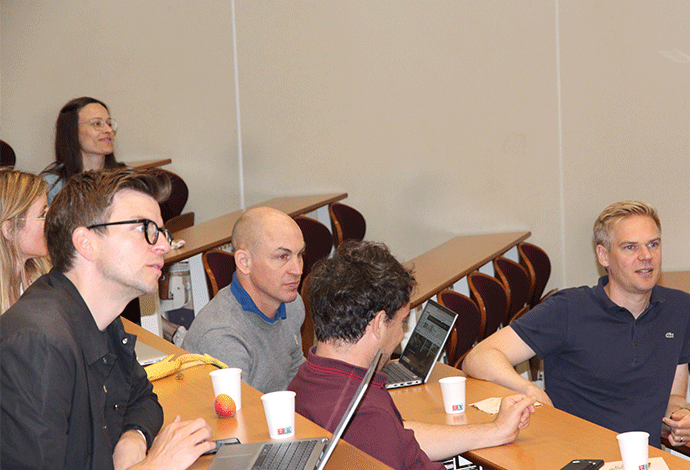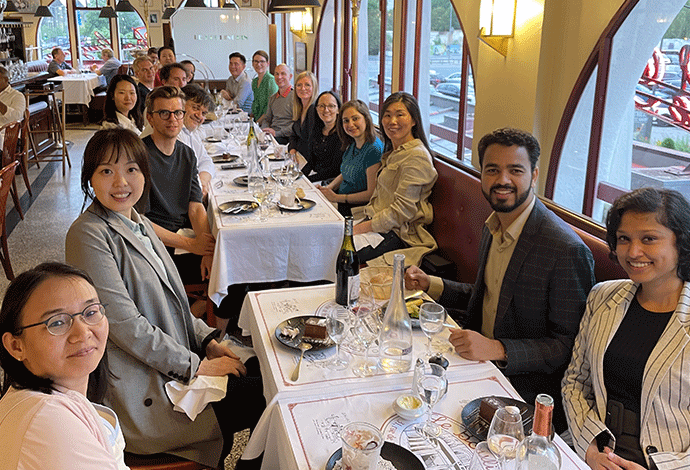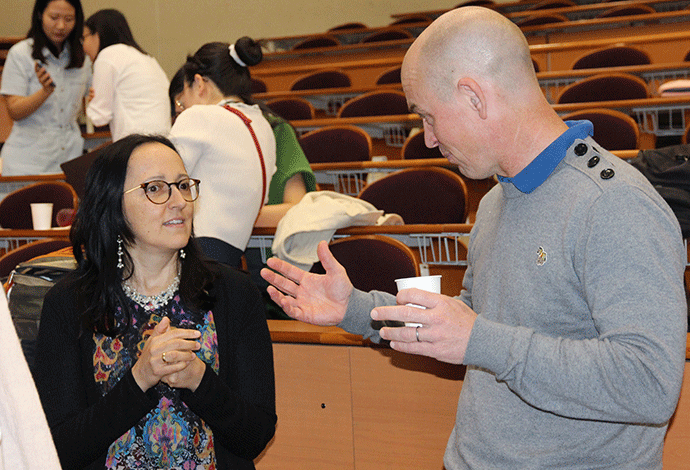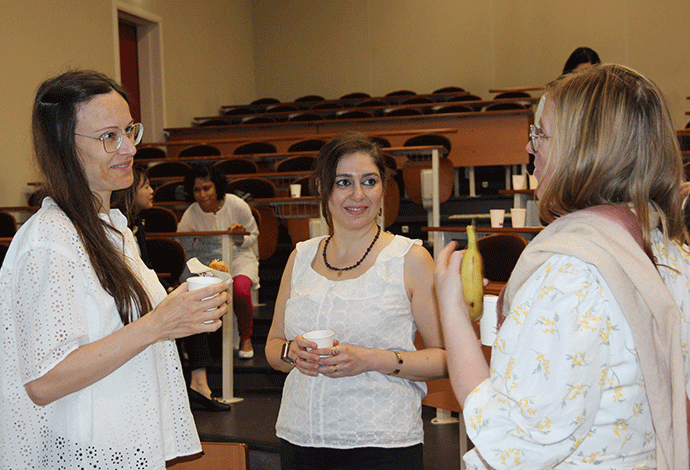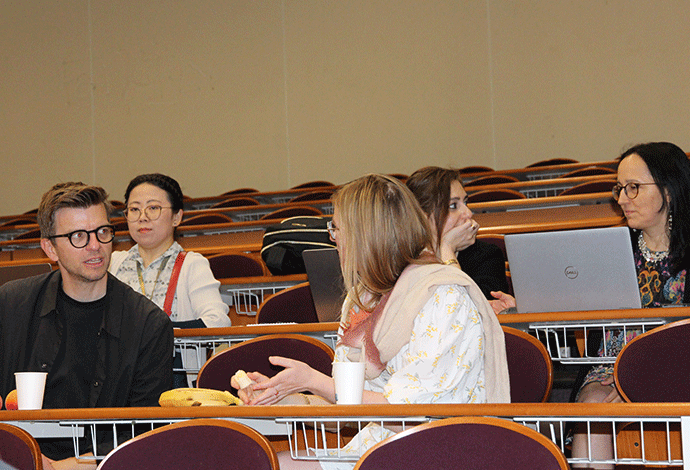Future of creativity research talks
Published on 09/11/2023
Thematics :
Future of creativity research talks
Published on 09/11/2023
On June 29-30, 2023, NEOMA hosted a mini-conference on Future of Creativity, in Reims, France. Research talks by invited guests and idea development workshops allowed the participants to actively discuss future of creativity research and develop potential collaboration projects.
Organised by the School’s Future of Work Area of Excellence, the conference gathered international speakers to investigate different aspects of Future of creativity research themes:
The participants also had the opportunity to relax and network during a traditional French Champagne House Tour at G. H. Mumm and a dinner at a famous brasserie in Reims.
Hye-Jung EUN, NEOMA Professor in the People and Organisations department and member of Future of Work Area of Excellence who organised the conference, answered our questions.
Creativity and innovation are increasingly important in our organisations and societies. Despite the growing importance of creativity, the current research and practice mainly focus on understanding how to make employees more creative while various other aspects of creativity remain largely undiscussed. Research on the various aspects of creativity can help us better understand how to manage creativity in organisations and societies. Inviting researchers working on these emerging aspects of creativity research, we hoped to make Future of Work Area of Excellence the hub of future of creativity research endeavours.
The mini-conference largely consisted of two parts. In the first part, the invited guests delivered research talks on future creativity research themes. The research talks included important societal topics such as the impact of AI on creativity and gender disparity in creative activities. Researchers also discussed sustaining creative performance and understanding consequences of creativity as well as presented new perspectives and approaches on the effects of emotions and chronotype on creativity. These talks stimulated questions, academic conversations and new ideas.
In the second part of the mini-conference, small groups were formed to discuss challenges and opportunities associated with creativity measurements in research. Following the discussions, participants were invited to make small groups based on potential future research questions, which were collected beforehand. These questions include, “When working with AI, how do decision-makers recognise a creative idea and implement it?” and “How does creativity enhance family-work conflict?” The mini-conference organised four 30-minute-long sessions, in which participants could freely go around different tables to engage in diverse research discussions of their interests.
The second part of the mini-conference, the idea development workshop, was meant to promote potential future research collaborations. Participants are expected to continue their conversations with each other. The small size of the mini-conference allowed us to get to know each other personally and as future project collaborators.
